When should you replace your bed sheets? Expert tips for quick changes and seasonal swaps for better night's sleep
From a change in weather to household illness, there are some key indicators it's time for a swap


Louise Oliphant
We all know how important it is to wash our bed sheets regularly to keep them fresh and stay healthy, but how often should you replace sheet sets for a better night's sleep?
Everything from a change in season to illness or even a room upgrade could warrant a sheet change, bedding experts say.
Here, they highlight the five key times you should swap your bed sheets for new ones to help you avoid some common bed-making mistakes.
How often should you replace your bed sheets?
Besides washing bed sheets every one to two weeks, Katie Elks, Brooklinen's director of design and product development, suggests you should also consider how hot you're sleeping at night, the bedroom look you're going for, and the quality of your current set.
Here's what to be on the lookout for when swapping sets, keeping in mind that your bed sheets are one of the bedroom items you should be replacing more often than you probably are.
1. Seasonal changes

The methods you use to keep warm in bed in winter will only serve to keep you tossing and turning when sleeping in the heat. Switching out your cozy cotton for some breezy summer sheets will help you sweat less and stay cool at night, and vise versa.
Bed Threads founder Genevieve Rosen Biller says, 'bedding made from natural materials like linen is moisture-wicking, lightweight, and cooling'.
Danielle Mason, head of product development at The Fine Bedding Company. adds, 'If you have polyester bedding that's prone to oil and bacteria you'll have to wash your sheets more frequently in the summer when you are more likely to perspire.'
If you only have one sheet set, it's worth investing in another that will help you maintain the best temperature for sleep more easily throughout the year. Unless you have an all-season comforter, you should also swap your duvet insert from a lightweight summer option to a thicker tog type for winter, and vice versa.

These organic cotton bed sheets from Brooklinen are not only kind to the earth, but also kind to you. Made with 100% natural materials free from any chemicals they're totally hypoallergenic for those who suffer with allergies or sensitive skin.
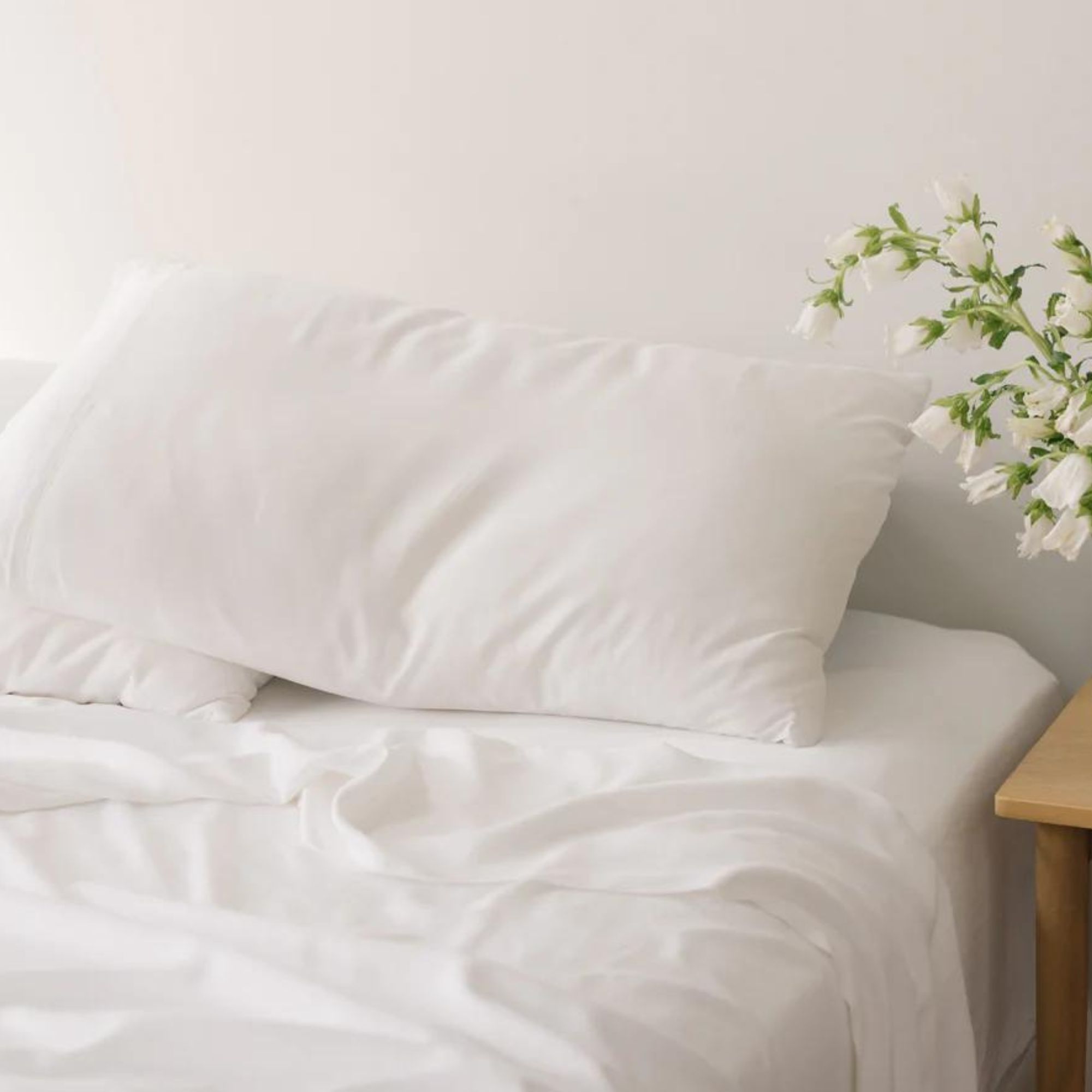
Bamboo bed sheets are great for keeping your temperature regulated. They're cool to the touch (which you can imagine is great for slipping into in summer), while their buttery softness makes them warm enough for winter.
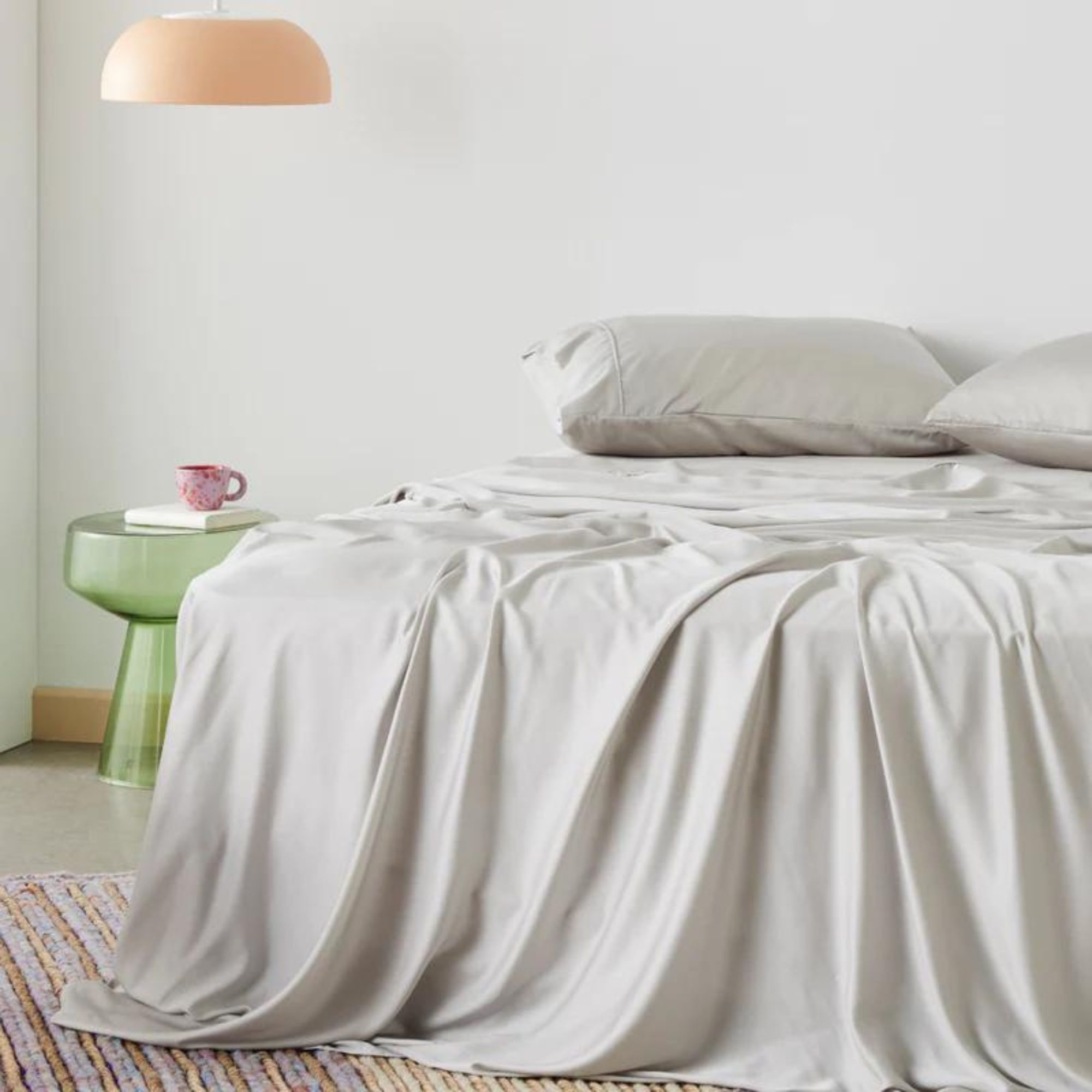
Naturally cooling, temperature regulating, and eco-friendly, the Ettitude's sheet set is a favorite for summer. Cool to the touch, and moisture-wicking they actively kept you cool at night.
2. They look worse for wear

Over time, bedsheets will start to look a little worse for wear. Be it from frequent use, improper storage, or some bedding laundry mistakes.
When bedding starts to fray or look threadworn, or simply does not feel as soft and comforting as it used to, it is a good time to consider changing bedsheets for a new set or two.
Christina Heiser, content director at Saatva adds, 'Sheets should be washed once a week or once every other week. This will keep both your top sheet and fitted sheet fresh and ensure they don't wear down too quickly.'
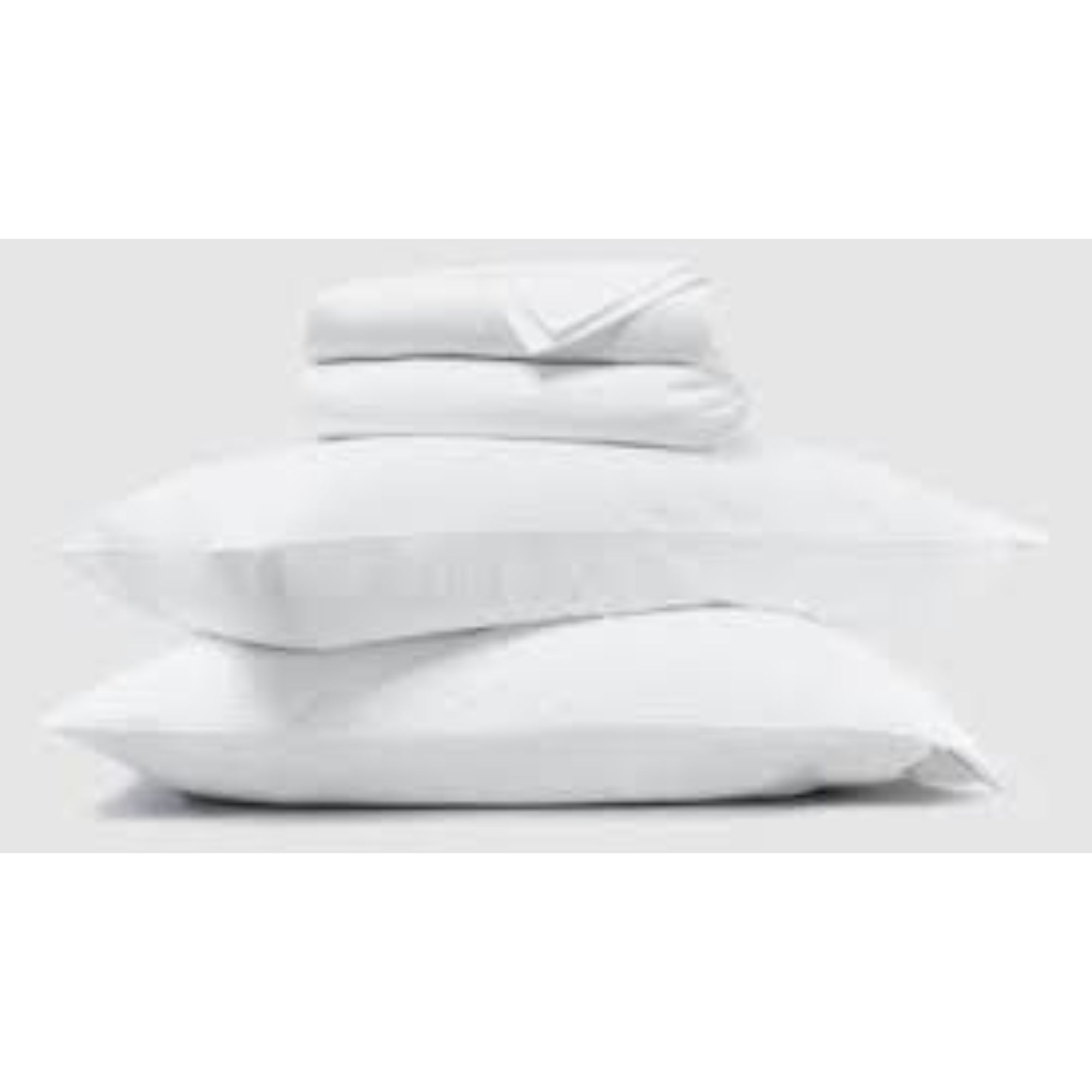
Upgrade your bedroom with Saatva's cotton-viscose blend sheets. Made from chemical-free OEKO-TEX® Standard 100 long-staple cotton, this sheet set is lightweight, breathable, and designed to keep you at the ideal temperature all night.
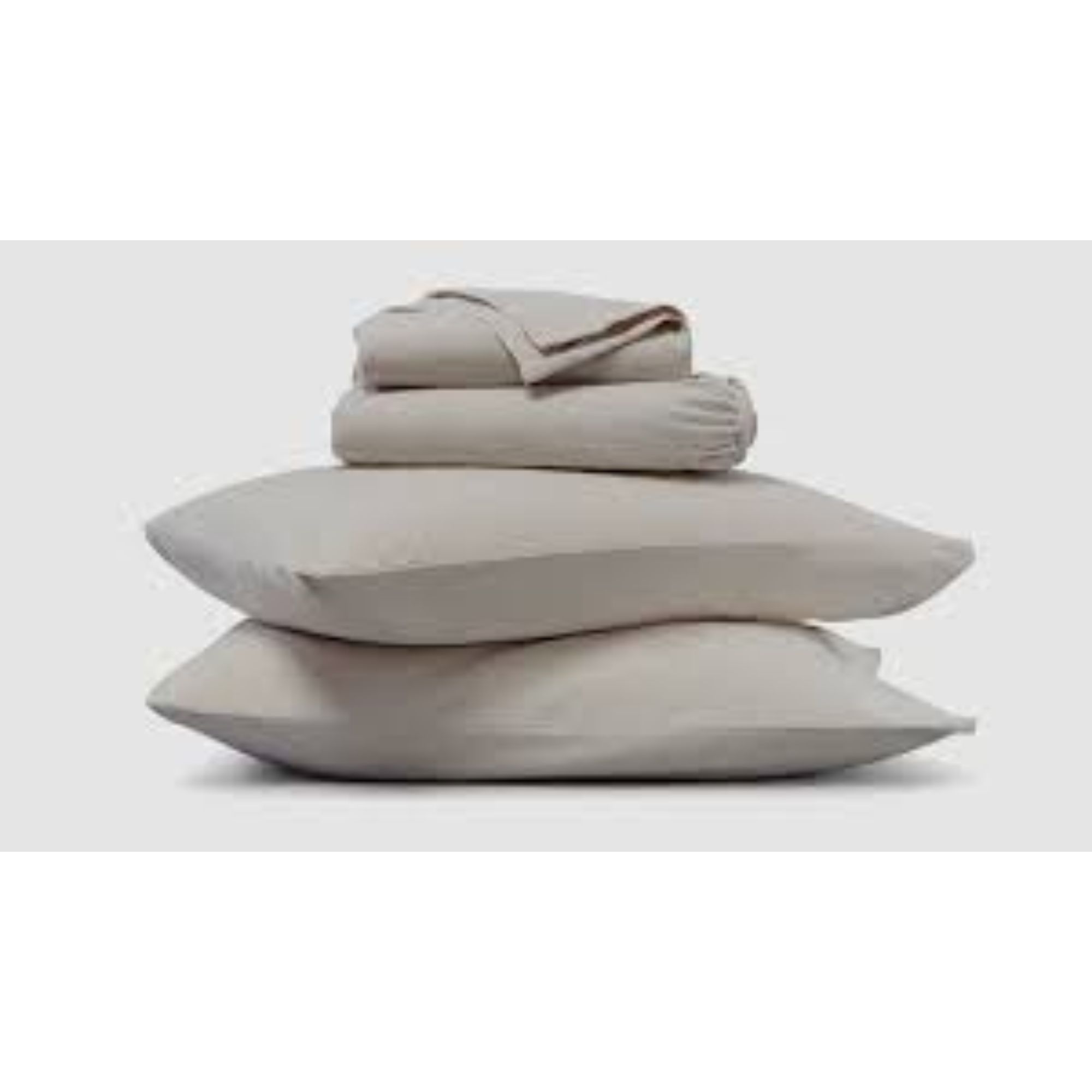
Envelop yourself in the soft, breathable warmth of Saatva's luxurious flannel sheets. They're woven from the world's best long-stitch cotton and yarn-dyed for a unique heathered finish. These sheets are made with OEKO-TEX® Standard 100 cotton, certified free of potentially harmful chemicals. Perfect for a drafty bedroom or home, these sheets will help keep you warm but not in an oppressive way that allows you to drift deeper into cozy sleep this winter.
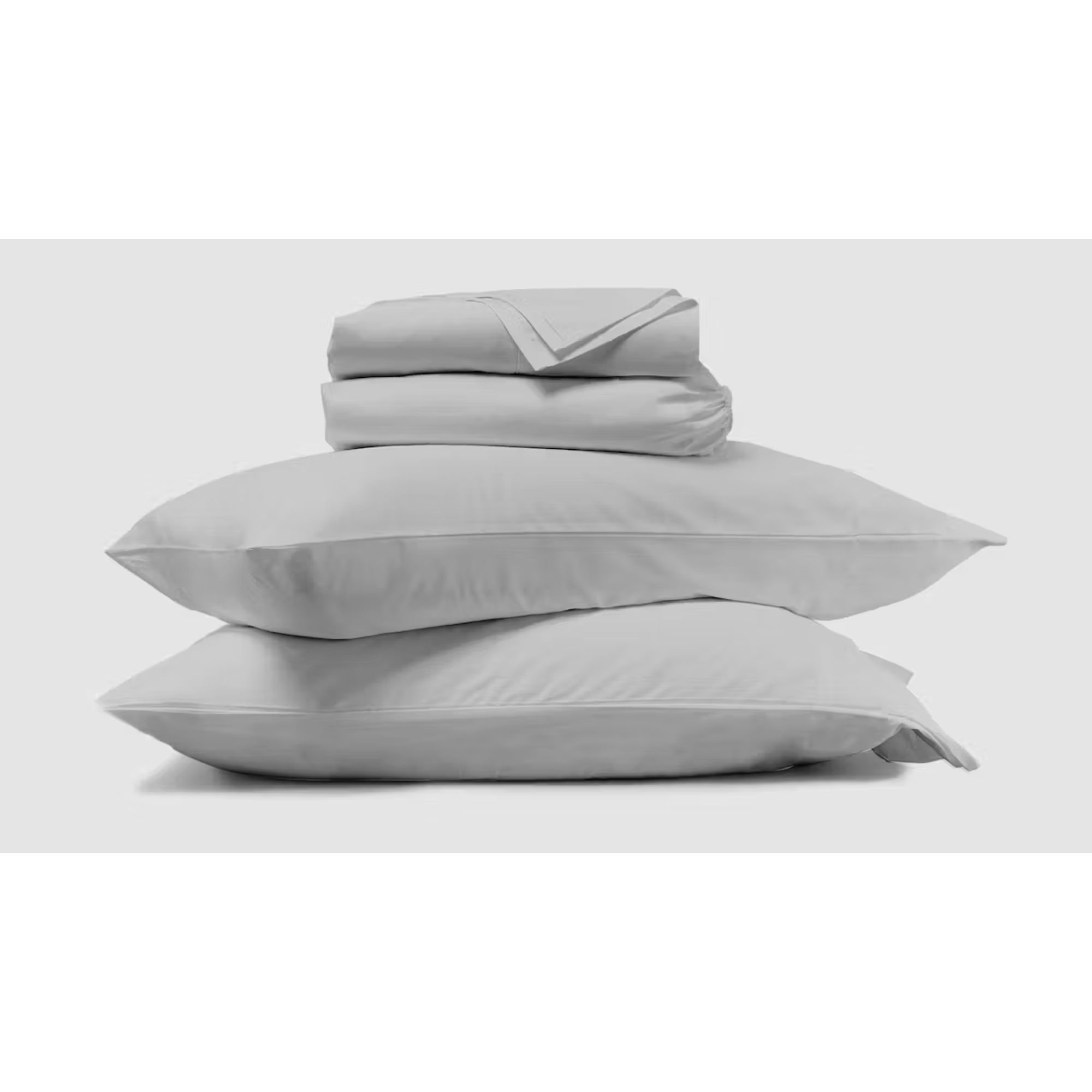
Sleep in effortless style with Saatva's deluxe linen sheets, made with responsibly sourced, all-natural European linen. This collection stays cool in the summer, warm in the winter, and gets softer with every wash. Sets include a flat sheet, fitted sheet, and two pillowcases.
3. They need washing
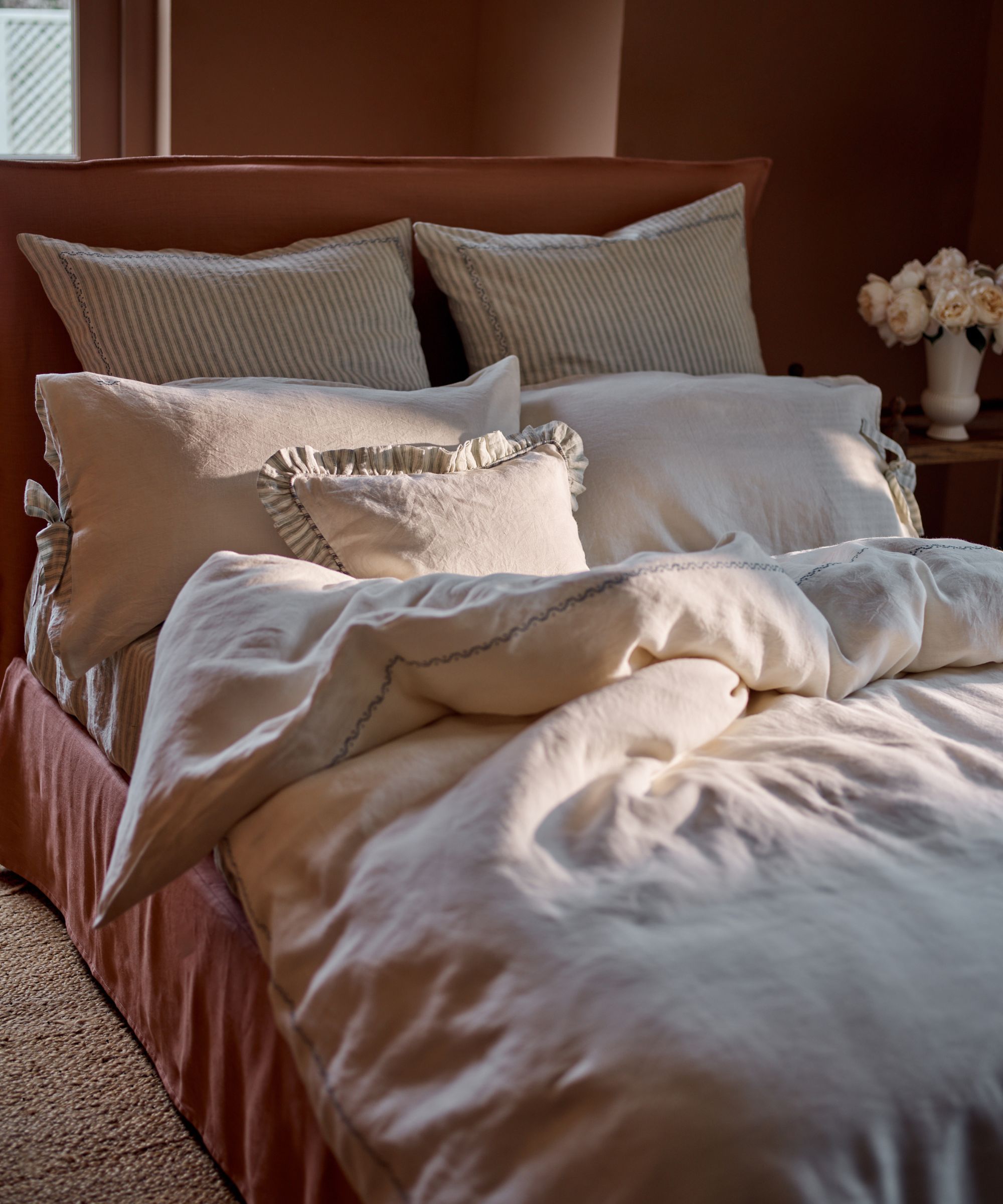
It should go without saying that you should change out your bedsheets whenever they need washing. Having at least two bedding sets to switch between means your first set has longer to dry completely (especially when reaping the benefits of air-drying laundry) to avoid mold and bacterial growth that could impact your sleep hygiene.
Parima Ijaz, bedding designer and founder of Pure Parima says, 'A general rule of thumb is to wash all of your bedding at least once a week. This frequency removes daily accumulation of sweat, oils, and allergens effectively. While this can change depending on your sleeping habits, climates, and other factors, we recommend keeping to this schedule as much as possible. '
4. You have been ill

Beds should be a prime target when cleaning your house when someone is ill.
Saatva's Christina Heiser explains, 'Another time to increase the frequency of changing your sheets is when you are sick. Viruses die in a matter of hours, so you don't have to be concerned with them lingering on your sheets, although some bacteria like the norovirus can survive for about a month (so you'll want to wash your sheets ASAP if that's the case).'
5. When changing your decor

Changing your bed sheets is one of the simplest ways you can switch up your bedroom ideas. Swap out a neutral bedding set for one of bright color and you've transformed your bedroom. You can double the effect by changing the material at the same time.
A velvet bedspread, for example, gives depth and elegance, making a bedroom look cozy, yet change it for a lightweight linen option and you've got a chic, Scandi look instead.
FAQs
How many sets of sheets should you have?
We would recommend having at least three sets of bedsheets per bed. One all-season set, one cool set for summer, and a cozy set for winter. This is so that when one is being washed, an extra set is clean and ready to be used. Having a single all-season set you can use all year round will mean you never have to get too hot, or too cold at night. If you're prone to eating in bed, sweat no matter the temperature, or have pets, or kids in bed, it may be useful to have a few cheap bed sheets, like one of these under $25 sets from Amazon, to hand where they are prone to spills and stains.
What happens if you do not change your sheets?
If you do not change your bed sheets, a few things can happen. Firstly, they will get dirty and start to smell, and may impact your health and skin (flaring existing skin conditions, or leading to new rashes and itchiness). They will also negatively impact your sleep quality.
You might also find that you struggle to sleep as you cannot regulate your temperature as well under thicker sheets in summer or thinner sheets in winter, resulting in drowsiness and lack of mental clarity.
Knowing when to change your bed sheets might not sound important, but it really is key to sleeping better and staying healthy. If it makes you feel wasteful, fear not. You can re-purpose old bed sheets for cleaning and other uses around the home.
Next, brush up on how to clean a bedroom to eliminate dust mites for the perfect night's rest.
Sign up to the Homes & Gardens newsletter
Design expertise in your inbox – from inspiring decorating ideas and beautiful celebrity homes to practical gardening advice and shopping round-ups.

Chiana has been at Homes & Gardens for two years and is our resident 'queen' of non-toxic living. She spends most of her time producing content for the Solved section of the website, helping readers get the most out of their homes through clever decluttering, cleaning, and tidying tips. She was named one of Fixr's top home improvement journalists in 2024.
- Louise OliphantEcommerce Editor
You must confirm your public display name before commenting
Please logout and then login again, you will then be prompted to enter your display name.
-
 Nate Berkus says slipcovered sofas are back on trend – and I just found a way to create this designer-approved laid-back look from just $86
Nate Berkus says slipcovered sofas are back on trend – and I just found a way to create this designer-approved laid-back look from just $86This classic style is making a strong comeback, but did you know you don't have to buy a whole new couch to get this Nate-approved look?
By Eleanor Richardson
-
 Gardeners are putting pasta in bird feeders this spring – but there is one important warning you need to know before following suit
Gardeners are putting pasta in bird feeders this spring – but there is one important warning you need to know before following suitCooked pasta can be a nutritious snack for birds, but serving it in the wrong way could cause them harm
By Tenielle Jordison
-
 I'm an expert vacuum tester, and no, you really don't need a mattress vacuum – here's what to use instead
I'm an expert vacuum tester, and no, you really don't need a mattress vacuum – here's what to use insteadBefore investing in a new gadget, the tried-and-true methods still work
By Dan Fauzi
-
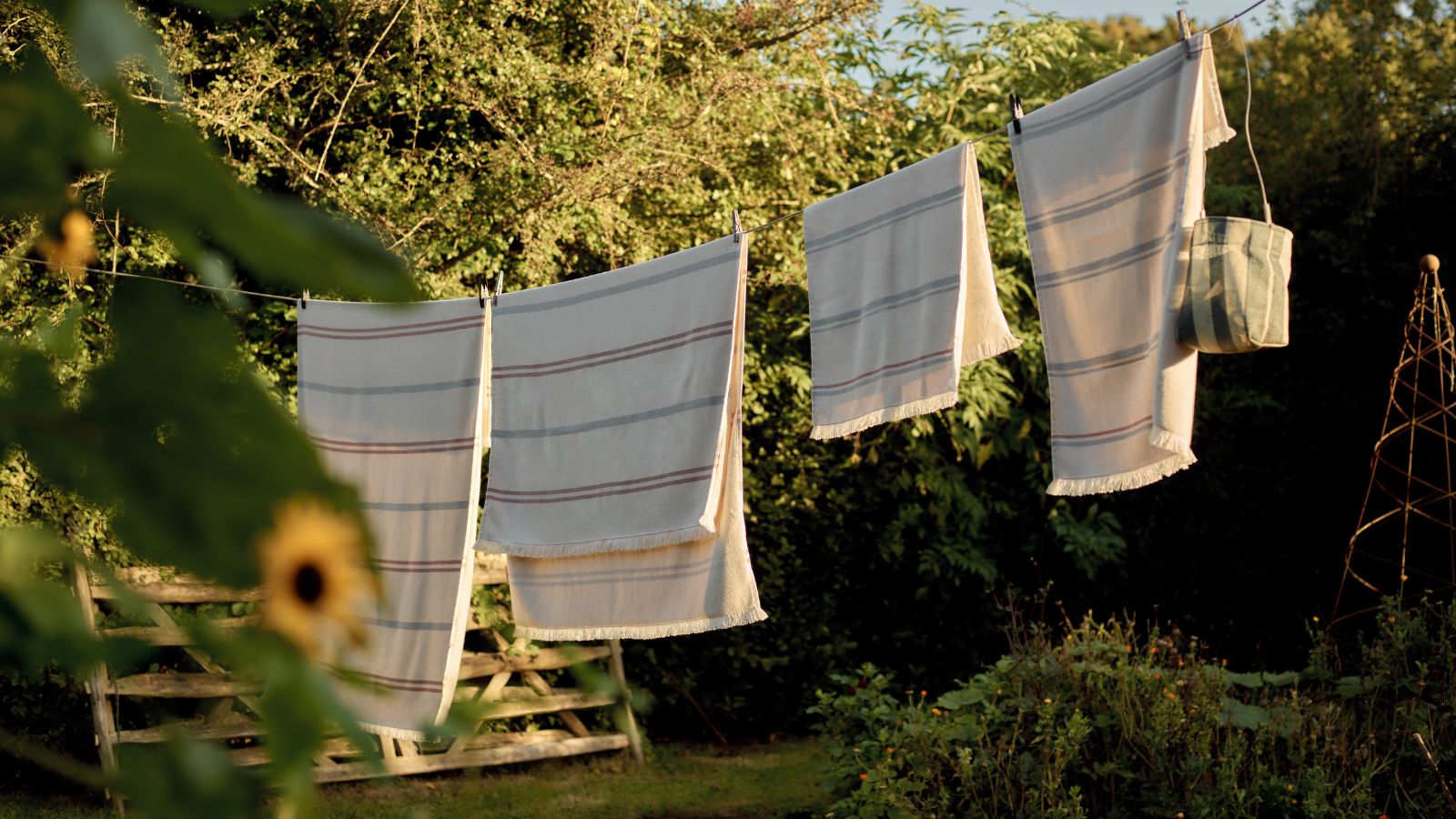 Should you dry your clothes outside if you have hayfever? Allergy specialists warn sufferers to steer clear of this 'major trigger'
Should you dry your clothes outside if you have hayfever? Allergy specialists warn sufferers to steer clear of this 'major trigger'Doing so can trigger asthma, coughing, itchy eyes and more
By Sophie Warren-Smith
-
 'It's not something I'm willing to budge on' – shoes on vs. shoes off, what type of household are you?
'It's not something I'm willing to budge on' – shoes on vs. shoes off, what type of household are you?Our professional cleaners are all in agreement on this one, but would you consider a switch?
By Ottilie Blackhall
-
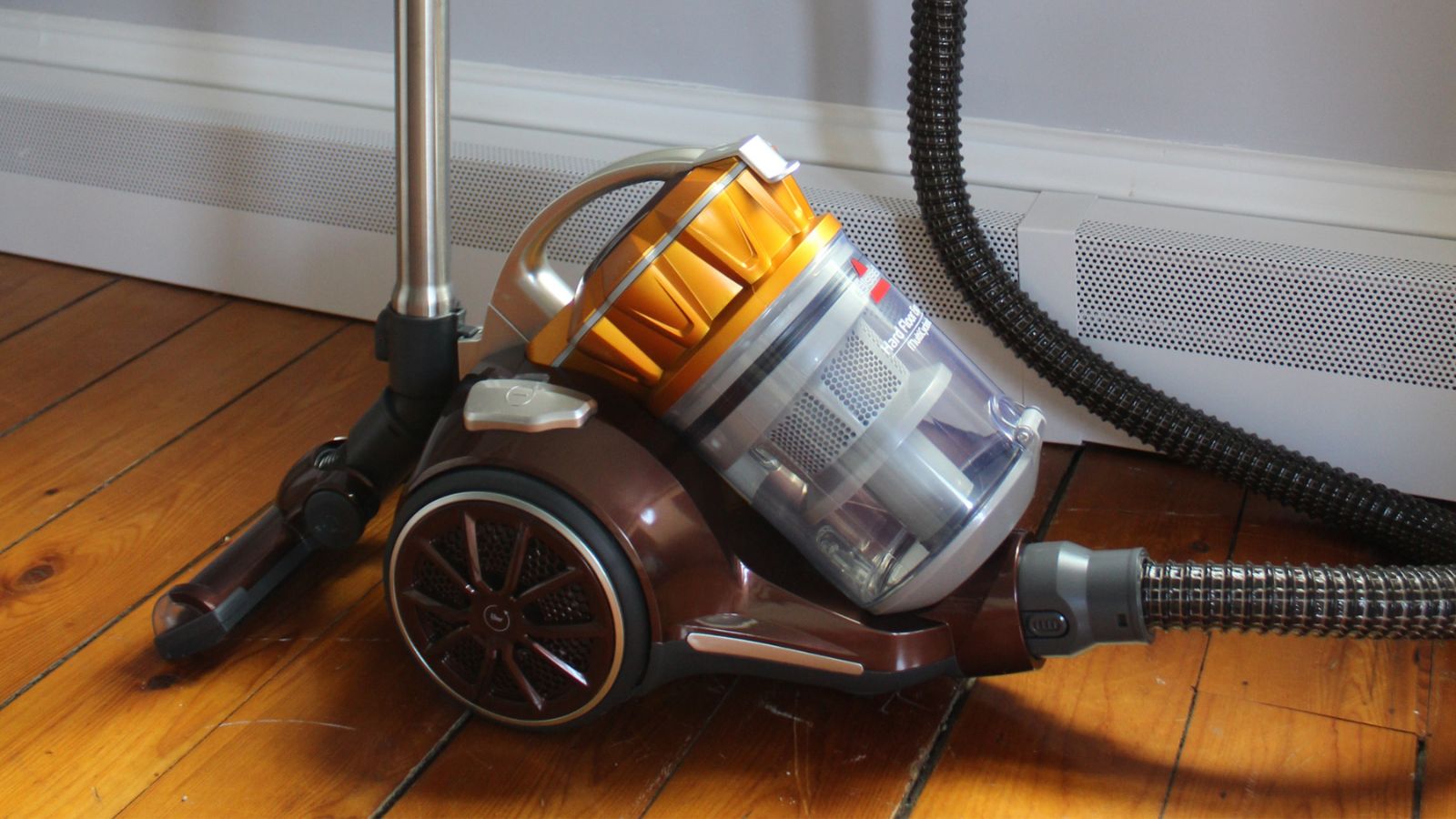 Bissell Hard Floor Expert canister vacuum review – if your home has smooth floors, this is all you need
Bissell Hard Floor Expert canister vacuum review – if your home has smooth floors, this is all you needAs the name suggests, this canister vacuum works wonders on hard floors, but even a low-pile rug is too much of a challenge
By Camryn Rabideau
-
 I tried this one easy dishwasher trick and made the annoying need for manual drying a thing of the past
I tried this one easy dishwasher trick and made the annoying need for manual drying a thing of the pastIf you hate those little pools of water left on your cups and crockery, this towel trick is for you
By Punteha van Terheyden
-
 5 freezer cleaning mistakes you must avoid – or risk compromising your food quality and shortening the lifespan of your appliance
5 freezer cleaning mistakes you must avoid – or risk compromising your food quality and shortening the lifespan of your applianceAvoid these blunders for a safer kitchen
By Seraphina Di Mizzurati
-
 If your home's facade is riddled with cobwebs, this $12 tool makes cleaning once-unreachable spots simple and speedy
If your home's facade is riddled with cobwebs, this $12 tool makes cleaning once-unreachable spots simple and speedySay goodbye to cobwebs and hello to a fresh and clean facade
By Rebecca Shepherd
-
 I tried the Pomodoro Technique to blast through my spring cleaning to-do list – now I'll always rely on it to banish procrastination
I tried the Pomodoro Technique to blast through my spring cleaning to-do list – now I'll always rely on it to banish procrastination25 minutes is more than enough to make a real difference
By Ottilie Blackhall